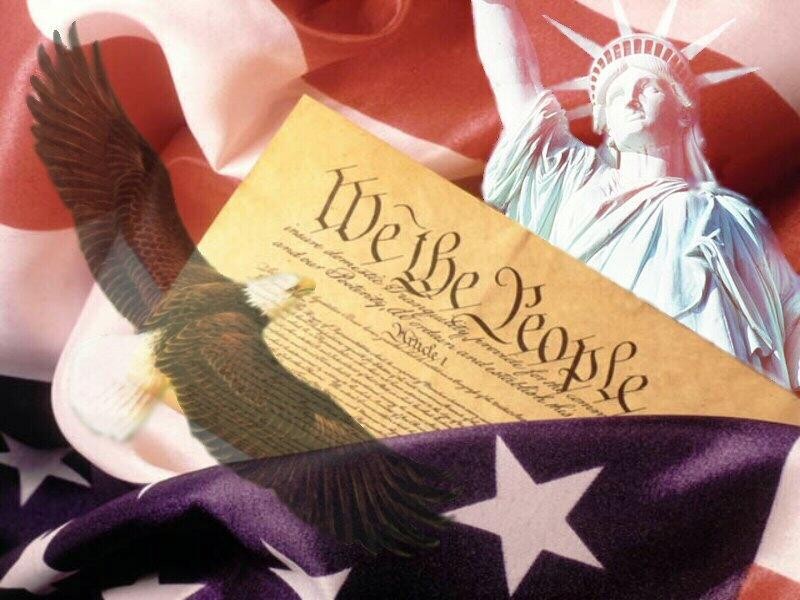Electoral College Myth #6: Eliminating the Electoral College would make every vote equal
Myth number 6 in my series on Electoral College Myths! Please don’t miss the earlier installments here:
Myth #1: Only swing states matter, other states are ignored
Myth #2: The Founders did not trust the people
Myth #3: The Electoral College is undemocratic
Myth #4: Votes cast for a 3rd-party candidate are wasted
Myth #5: Eliminating the Electoral College will make it harder to steal elections
Myth: A national direct election system would be better than the Electoral College. It would force presidential candidates to run truly national campaigns because votes in every corner of the country would have the same weight. Every voter will matter only if every vote is equal.
Fact: The real question is not whether voters are or are not equal with each other. Every voter in this nation is equal with every other voter in his same election pool. The question is whether the relevant election pool should be one national election pool or 51 state (plus D.C.) election pools. Second, it’s important to remember that there is an important difference between giving votes the same legal weight and making voters equal in practice.
Perhaps it helps to remember how our system operates today. Americans don’t hold one single, national election for President. Instead, we have an election that operates in two phases. In the first phase of the election, Americans participate in 51 completely separate elections—one in each state and one in D.C. The purpose of these purely democratic, state-level elections is to determine which individuals (electors) will represent your state in a second phase of the election. In these state-level elections, your vote carries the exact same weight as every other voter in your election pool! In other words, every vote cast in Kentucky has the same legal weight. Likewise, every voter in Florida is equal with every other voter in Florida.
The second phase of the election occurs in December. This latter election is an election among the states’ 538 electors, which were elected on Election Day. A majority of them (270) can elect a President.
Electoral College opponents correctly note that eliminating the Electoral College would change our two-phase process into a single, national election. Thus, instead of votes that have the same legal weight at the state level, we’d have votes that have the same legal weight at the national level. But there is an important difference between making voters legally equal and making them equal in practice. If we conduct one single national election, we will have the former, but not the latter. If we keep our current system, we ultimately do better with both.
Presidential candidates have limited time and resources; they must strategize and prioritize. They won’t run out to a remote city like Worland, Wyoming, simply because the 4,000 potential votes there have the same legal weight as 4,000 votes cast anywhere else in the country. As a strategic matter, candidates are immensely more productive if they head to a large urban area to get those 4,000 votes. It’s simple math. In a big city like Los Angeles, they will obtain not only 4,000 votes but probably millions more. In a world without the Electoral College, rural areas and small states will never again matter in the presidential election. It won’t matter that their votes have the same legal weight as voters in big cities. Practically speaking, candidates have little incentive to care how they vote.
The Electoral College, by contrast, forces presidential candidates to broaden their appeal as much as possible. If a candidate has already won California, then the 4,000 extra votes in Wyoming or another small state really might be what he needs. He doesn’t need any more votes in L.A. His campaign strategy must take into account the fact that his support must cross state and regional boundaries if he is to win a majority of states’ electoral votes.
Electoral College opponents sound irrefutable when they argue that the Electoral College should be eliminated because “every vote should be equal.” They forget—or choose to ignore—that the Founders incorporated state action into our presidential election system for very important reasons. And it turns out that giving votes equal legal weight within state boundaries (instead of national boundaries) ensures that voters are not only legally equal, but also much more equal as a pragmatic matter.
Please don’t miss my new kids’ illustrated book about the Electoral College!
Signed copies available at the bottom of THIS PAGE.
If you have Amazon Prime, shipping will be much cheaper with (unsigned) copies HERE.
This entry was posted in Electoral College resources. Bookmark the permalink.

